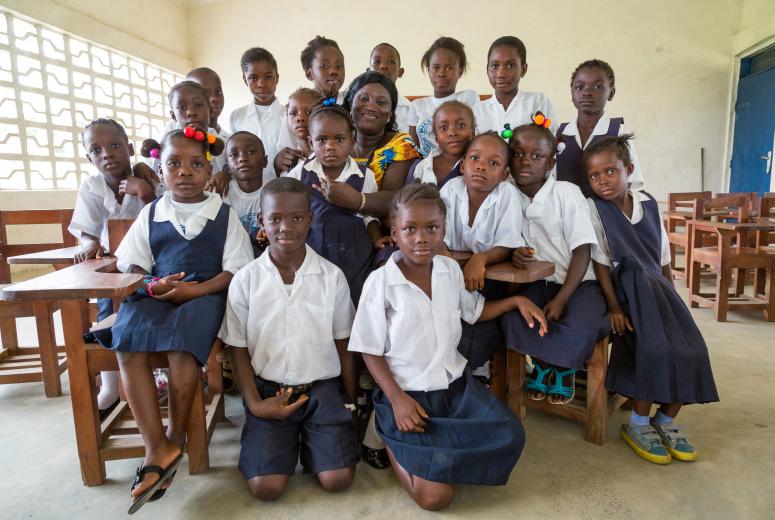As we mark one year since the global COVID-19 pandemic hit Africa, all eyes are on countries’ ability to secure, import and distribute the vaccines that have been proven effective in the fight against the novel coronavirus.
The pandemic has highlighted the glaring gap between the developed and developing world. Wealthy nations have been able to source and stockpile hundreds of millions of doses of vaccine, while many poorer countries, including those in Africa, are still in the planning and procurement stages.
Kenya requires 30 million vaccine doses in order to vaccinate 60% of its population, which is in line with the guidelines released by GAVI to achieve herd immunity. The country is expecting to receive 24 million doses of the Oxford/AstraZeneca vaccine through the WHO’s COVAX facility, with 12 million more doses expected via bilateral agreements. Kenya will also receive additional doses via the African Union’s African Vaccine Acquisition Task Team, although details around this are still vague.
While it’s hugely encouraging that more vaccines are becoming available and that Kenyan citizens could soon receive much-needed doses, immense challenges remain.
Supply chain constraints challenge vaccine rollout
The distribution and administration of vaccines at the scale of COVID-19 is a monumental challenge. There is much at stake because disruptions in the supply chain can prevent the delivery of the vaccine and negatively impact public trust.
Delays are paid for with human lives and push out the prospect of herd immunity. Reacting quickly to unexpected interruptions is key and is only possible if the entire supply chain, from procurement to production and delivery, is managed end-to-end.
According to the World Health Organisation’s Vaccine Introduction Readiness Assessment Tool, African countries have an overall score of only 33% preparedness for rolling out vaccines to their populations.
Pharmaceutical companies leverage technology
Thankfully, many of the leading pharmaceutical companies responsible for developing and producing COVID-19 vaccines have built extensive digital capabilities. Today, 18 of the world’s 20 major vaccine producers are already running their production on SAP solutions that cover their end-to-end processes, from manufacturing to controlled distribution to administration and post-vaccine monitoring.
For example, SAP Advanced Track and Trace for Pharmaceuticals is helping Moderna to comply with international legislation intended to prevent counterfeit drugs from reaching patients. The application provides a corporate serialisation repository, serial number management, and regulatory reporting capabilities.
German vaccine producer CureVac, whose COVID-19 vaccine is currently in testing, uses SAP to manufacture and distribute vaccines on a global scale.
In addition, the Vaccine Collaboration Hub (VCH), an extension to SAP’s business network, supports large-scale vaccination programs like what is needed for COVID-19. It covers the end-to-end process from manufacturing to controlled distribution to administration as well as post-vaccine monitoring.
The role of tech in Kenya’s vaccine efforts
Emerging, emerged and established technologies all have a role to play in Kenya’s current race to vaccinate its population. For example, trying to identify which people require vaccines with some attempt at prioritisation could leverage data, data mining, data science and patient segmentation based on various demographic, risk profiling and patient history information.
To track vaccine distribution across the country, a combination of technologies including blockchain, analytics, integrated scanners, location tracking tags and mobile apps could provide a framework to show relevant subsets of information to different supply chain stakeholders.
In terms of patient engagement, self-service appointment booking, customer experience platforms and patient feedback capture using apps and non-contact in-clinic kiosks can help to determine how well practitioners are fulfilling their duty. Similar platforms can be leveraged to focus on employee experience, offering insight into the mental wellbeing of frontline healthcare practitioners and reducing the risk of burnout.
Looking ahead, machine learning and streaming analytics could help identify irregular patterns in data that talk to issues within procurement, production, logistics or financial audits. IoT, 5G, LoRa (Long Range networks) and edge computing allows a vast array of use cases to be realised, where sensors can determine the conditions in which stock is being made, stored or shipped, and to allow critical response to be actioned before major incidents arise.
The COVID-19 pandemic has introduced unprecedented challenges to countries around the world, and Kenya is no exception. As the country readies itself for the vital process of vaccine distribution, it is critical that there are no unwarranted delays or disruptions. This will also give citizens the confidence that the medicines they are getting are safe and efficient. Technology can play a valuable supporting role to ensure Kenya’s vaccine rollout is a success.
Africa Media Agency


